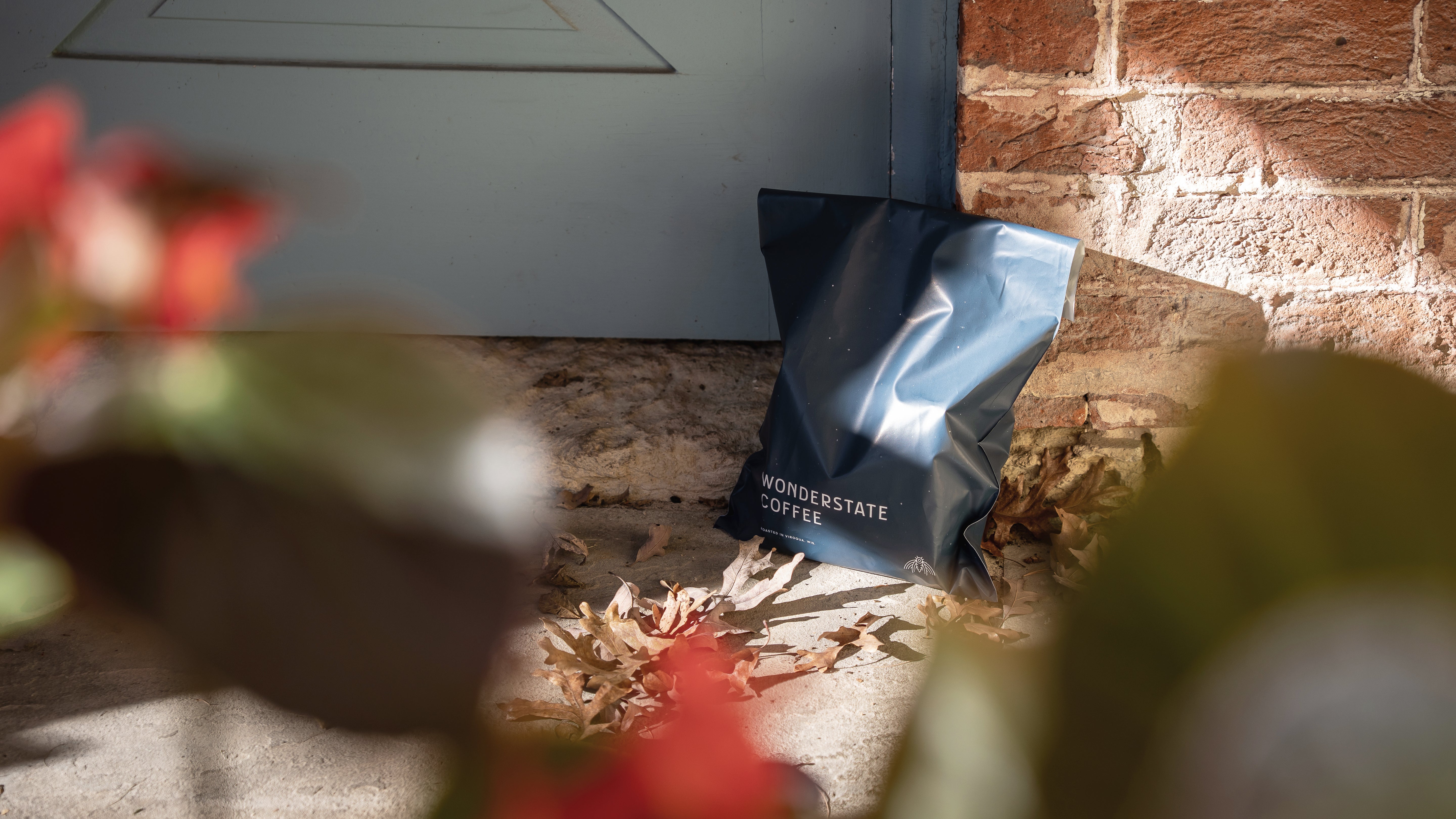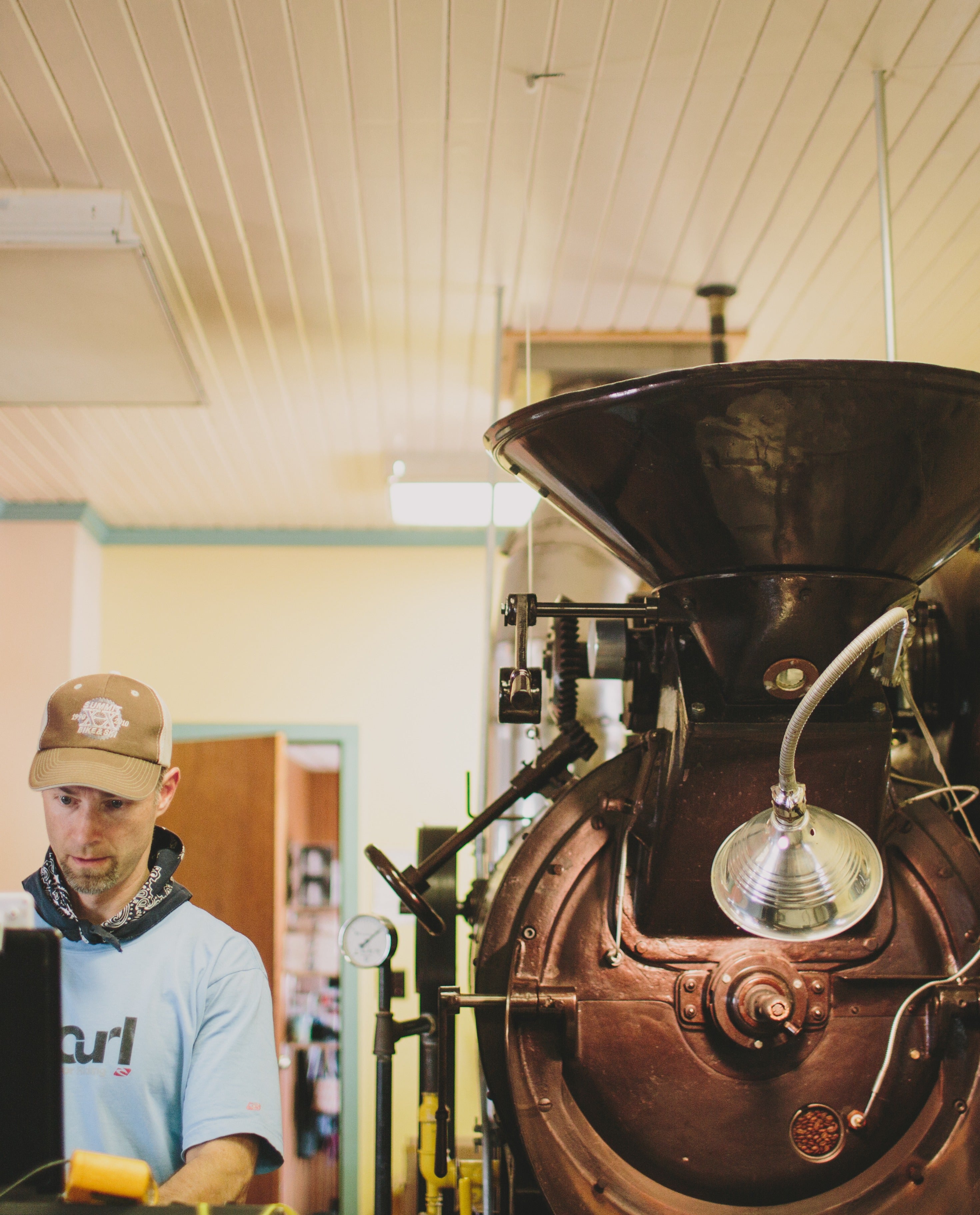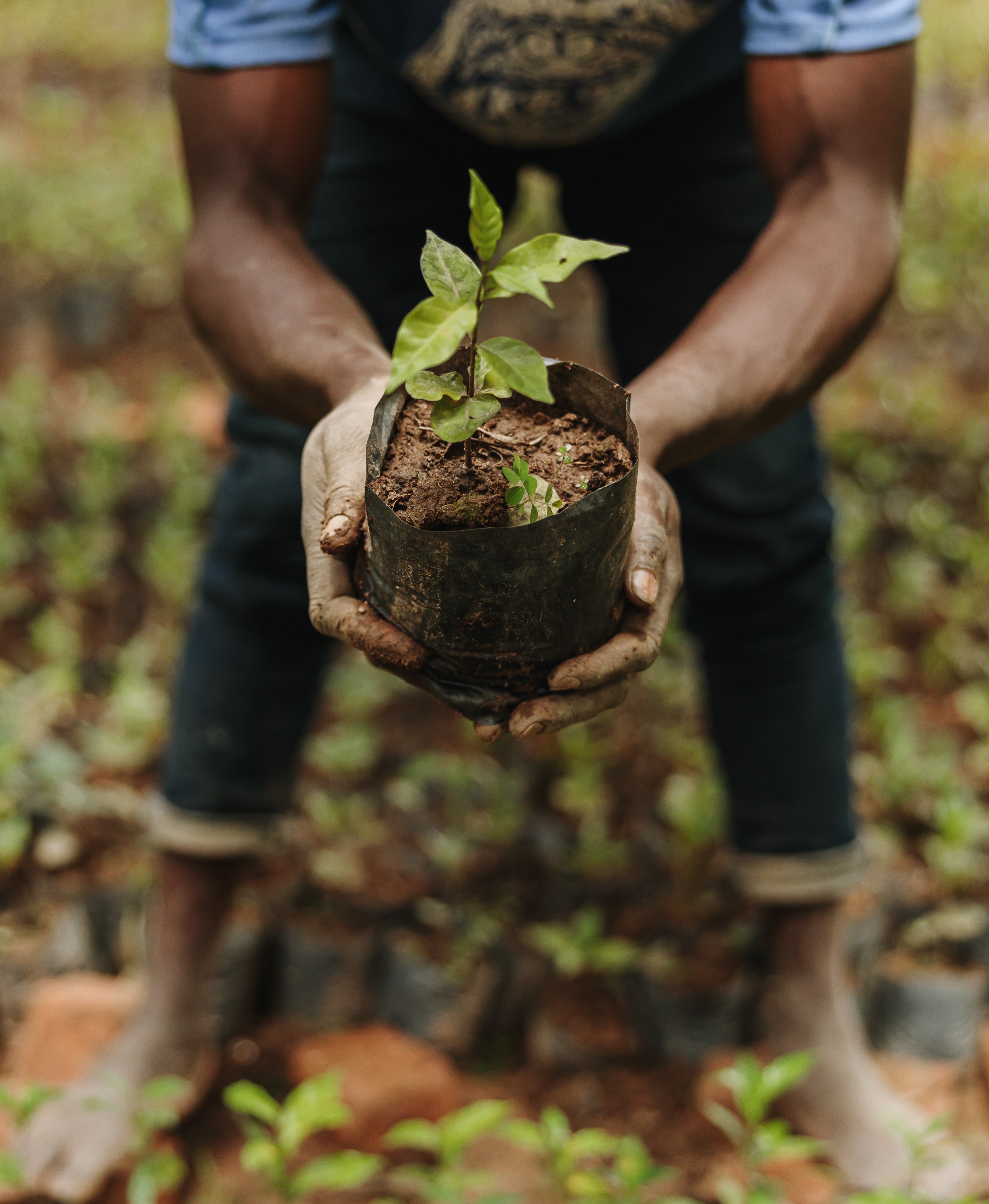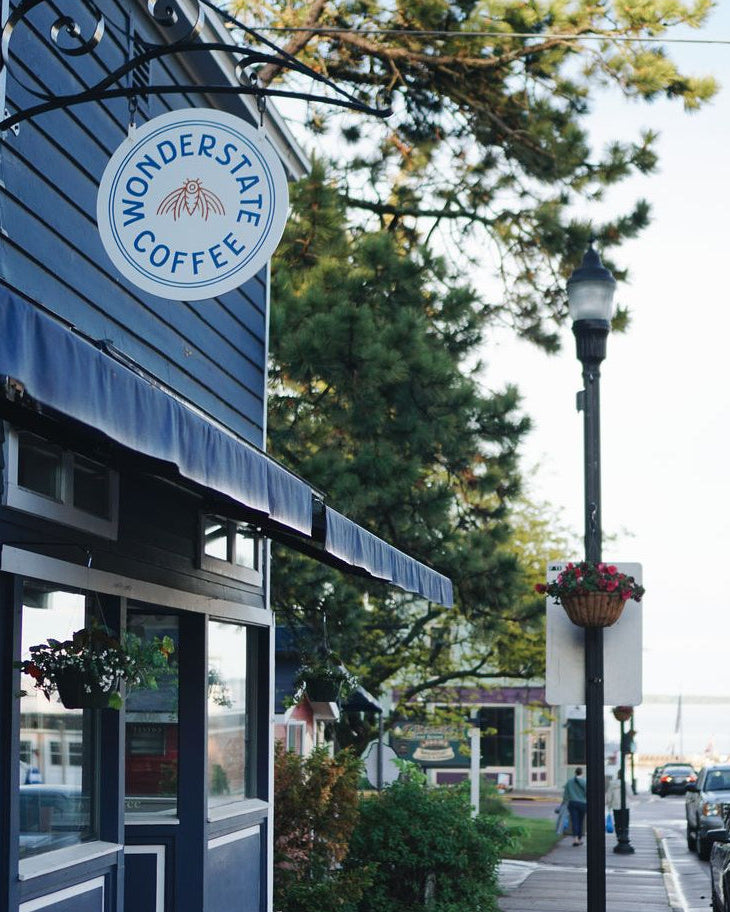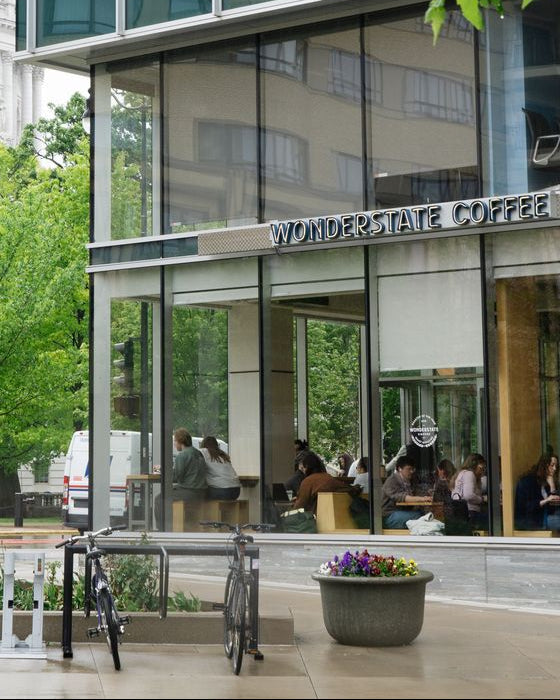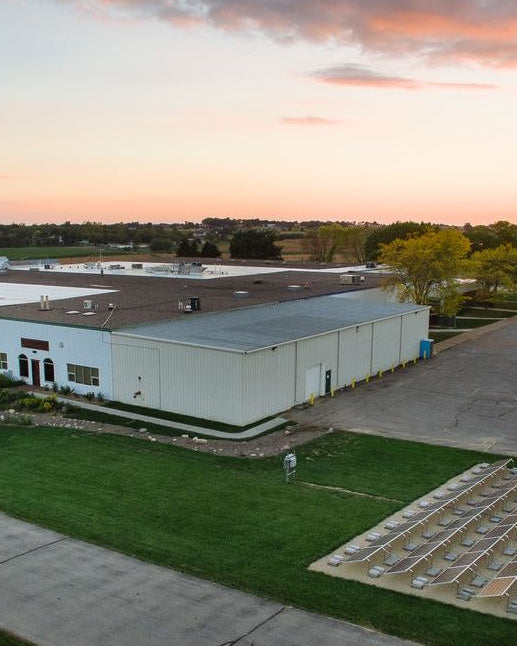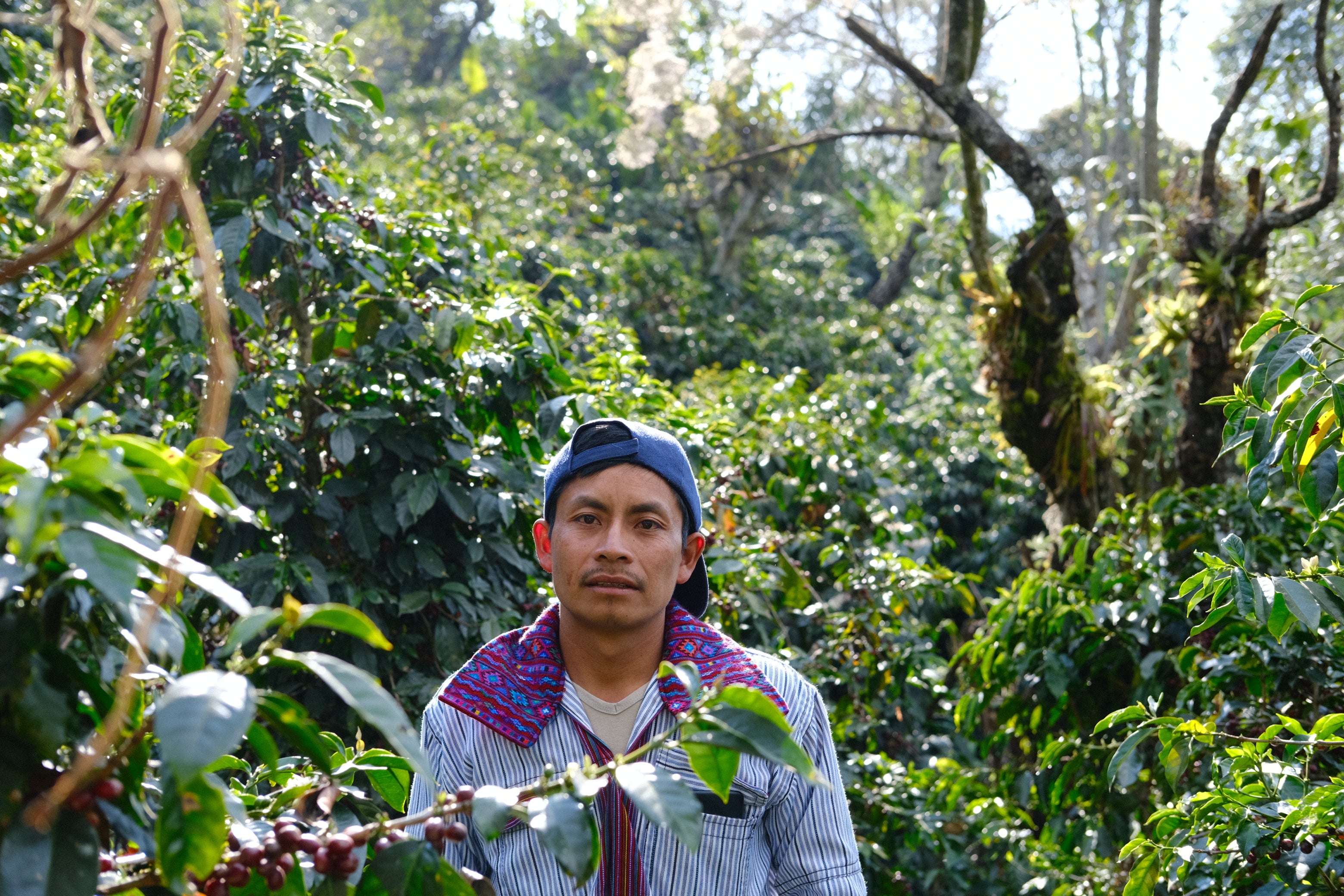
Porfirio Velasquez stands among his coffee plants on his 7-acre farm in the San Marcos department of Guatemala.
It's been tough to keep quiet about the incredible Guatemalan coffees that'll be arriving this season. Earlier this year, we had the opportunity to travel the countryside to visit long-term cooperative partners and new, exciting farmers growing coffees that defy any expectation of the origin. From the arid, desert-like hills of San Miguel to the lush mountains of Huehuetenango, we encountered resilient farmers leveraging clever organic practices and the stalwart farmer cooperative structure to produce coffees of incredible quality.
Most coffee farmers, and 100% of our producer partners in Guatemala, are indigenous, campsino, or mestizo. They're also exclusively smallholder, farming an average of 7 total acres, and as small as 2 acres. Most producers have grown up in coffee production (or agriculture, generally) and continue to choose this path and lifestyle because it reflects their historic values, worldview, and cultural traditions — taking great pride in being coffee producers.
In the past, Guatemalan coffees have been seen as mid-level to commodity in terms of quality. But today, there is a recognition that Guatemala continues to produce coffees that reach levels of true excellence, with exceptional flavors and diversity of cup experiences, though these coffees often come from large modern farms who’ve accumulated great wealth. And while many of these coffees come from large, modern farms, we've been able to find really outstanding coffees being created by cooperatively organized, smallholder, organic farmers on the margins.
We work with two cooperatives in Guatemala and although both are located in the department of San Marcos, they represent two unique and distinct growing regions in the country: mountain foothills and arid hills.
CODECH is headquartered in the town of Concepcion Huista, located just northwest of the Sierra de los Cuchumatanes mountains, which are the highest non-volcanic mountain range in Latin America, creating a lush and ideal context for specialty coffee cultivation.
Manos Campesinas is a large umbrella cooperative with 16 different sub-groups. We specifically work with the groups of San Miguel and La Unidad, in the department of San Marcos. Much of this area stands in stark contrast to the mountains surrounding CODECH. The climate is arid, rocky and dusty, and at first blush seems the antithesis of an area that can produce great coffee. But with the help of the cooperative's in-house agronomists and clever organic cultivation techniques, the farmers of both of these cooperatives are able to produce outstanding coffees, representing the best of Guatemala and Central American coffee as a whole.
The first Guatemalan coffee to grace our countertops this season is Guatemala Tojquia from our multi-year partner, Porfirio Velasquez.
The view from Porfirio's farm.
His coffee is a combination of the classic Guatemalan flavors we’ve come to know and love, but with varied nuances throughout the drinking experience. At first sip you’ll notice sweet tones of milk chocolate and nougat, with delicate and complex flavors of hibiscus and grapefruit appearing as the cup cools. The mixture of pleasing sweetness and piquant acidity is one of the reasons we continue to come back to top tier Guatemalan coffees like Porifio’s each year.
In many ways, Porfirio represents the very definition of campesino. His farm is a little more than 7 acres, most of which is coffee trees amongst a slew of native shade trees, flowers, and shrubs. He dresses each day in traditional Mam attire — an indigenous people of the western highlands of Guatemala. Earlier this year, we had the opportunity to visit with him to discuss his career in coffee, which for him isn't an occupation, but a torch to be carried, harkening back to his parents and cultural preservation through farming and lifestyle.
Though humble and reserved, Porfirio warmed and joked while we chatted over local beers which were welcomed after carrying them on an hours-long hike to his farm. As we translated from Mam to Spanish to English, he was especially elated upon learning that he'd placed 3rd out of 65 other farmers in the annual CODECH cupping competition, which we had the privilege of co-judging. We're honored to once again work with Porfirio and purchase his entire harvest. He's an incredible producer that — despite the challenges of modern coffee production — has been able to create an outstandingly complex coffee, all while carrying traditional farming and indigenous culture into the future.
Read more
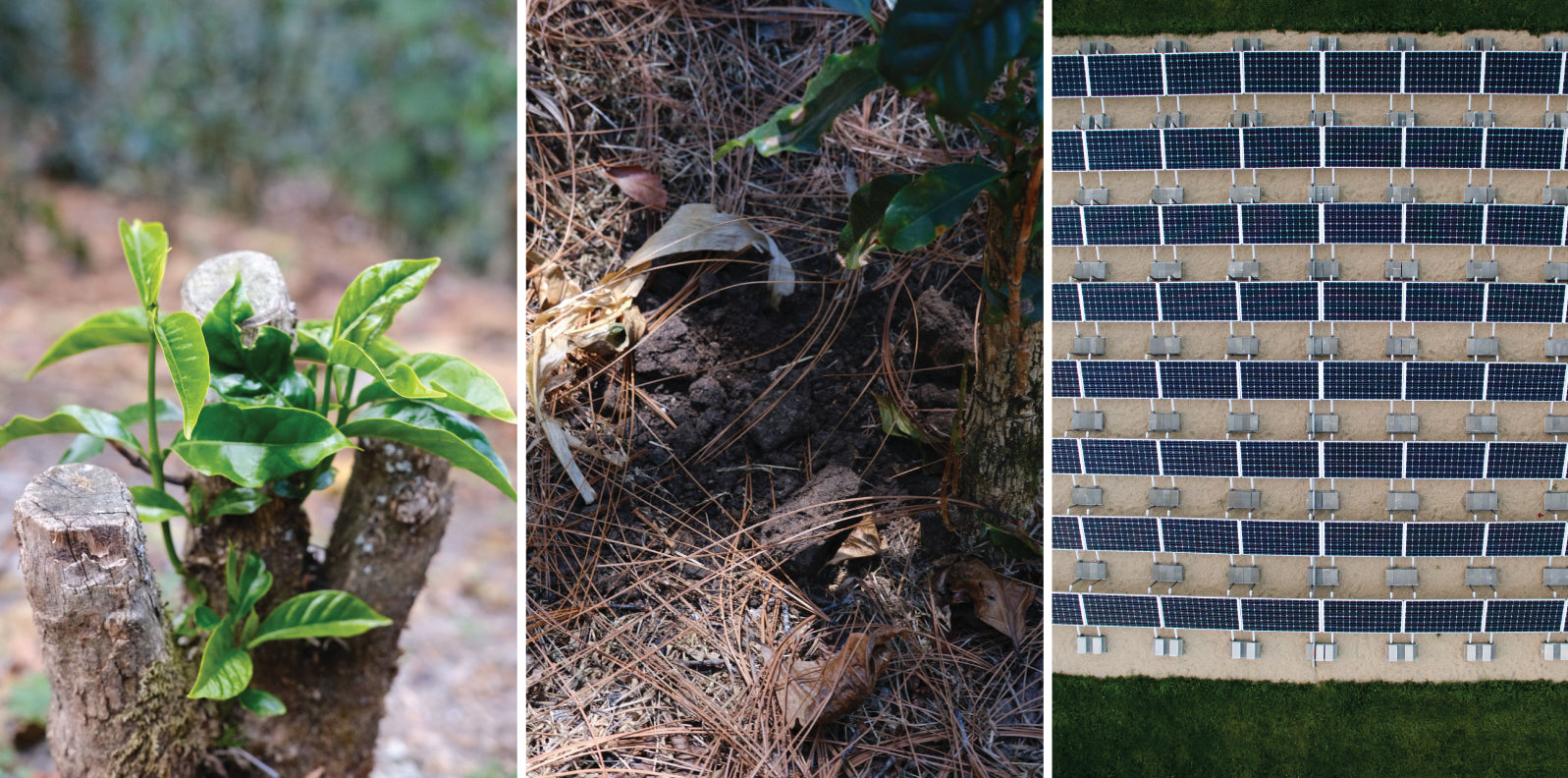
Pictures 1 and 2 above show pruning and organic input trenching near the base of the coffee plant in Guatemala. TL;DR: Organic agroforestry farming is a nature-based climate solution and c...
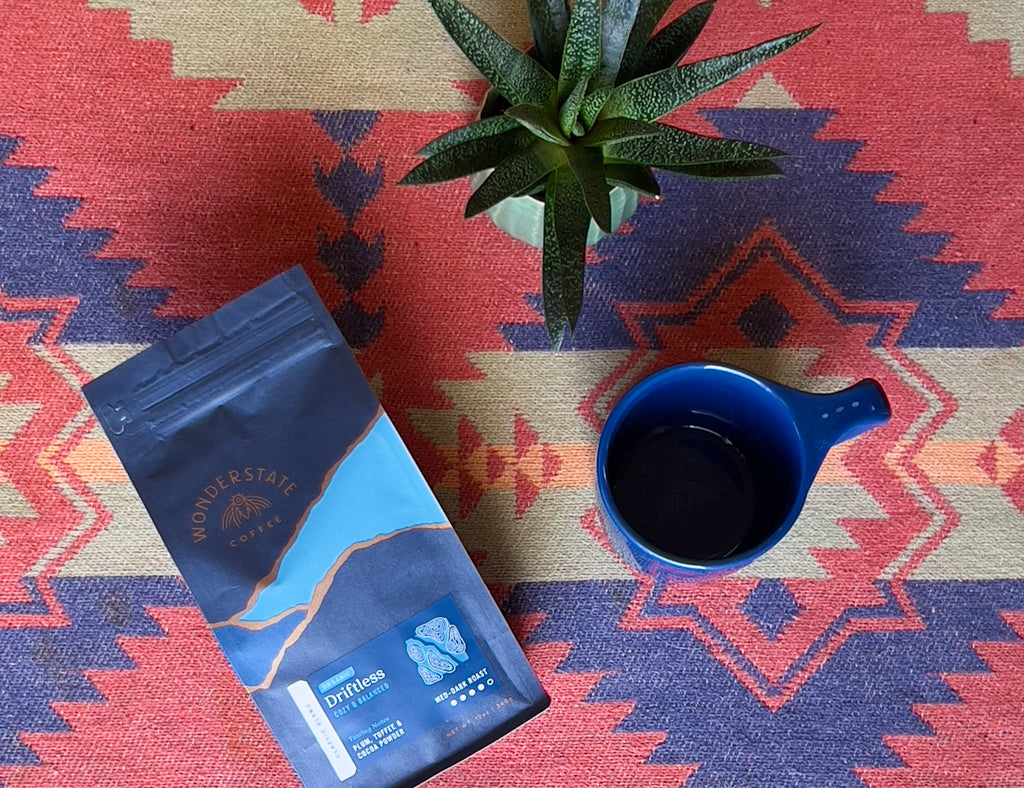
Organic Driftless. Smooth and deep flavors of dark chocolate, toasted nuts, and warming baking spices. Named for the region our roastery calls home — where we work, play, roast and brew. Now Coffe...

